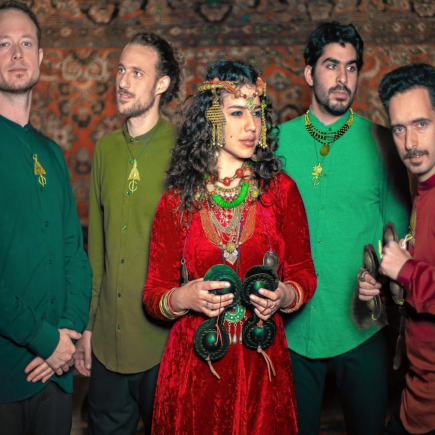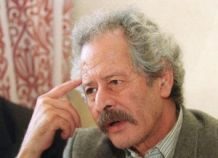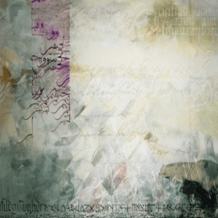
For world music enthusiasts, the songs performed by twenty-nine-year-old Jewish-Moroccan songstress Tamar Bloch and her band Zaaluk are essential listening. Tamar Bloch is well known in Israel and Morocco. She also collaborates with the ensemble Andalucious, a group created by violinist and arranger Elad Levi. In 2018, she performed at the Andalusian Atlantic Music Festival in Essaouria.
On October 25, 2019, Bloch and Zaaluk released their newest hit single Bellida. The song is sung in the traditional Haketia, an endangered Jewish Romance language also known as Djudeo Spañol, Ladino Occidental, or Western Judaeo-Spanish. Tamar is part of a new generation of young artists from Arab and Islamic countries who sing in their mother tongues. Her mother was born in Morocco.
“I’m not involved in a preservation project and the social narrative isn’t what’s important to me. In my music I have found, after much searching, a real place for intimate expression – a language that’s a home, ” said the singer in her interview with Haaretz Magazine.
Bellida is “definitely a pop album. It’s not world music from a distant and inaccessible culture, which is being preserved. I bring the songs in modern arrangements in the understanding of how relevant this music is.”
The song was arranged with the help of Roee Fadida. It is a humoristic women’s song that represents the tradition of women singing in everyday life. “It tells the story about a Jewish-Moroccan girl (Bellida) who falls in love and marries Pepe, a Christian man. The ladies in her village make jokes about it but comfort her with local food.”
Although Bloch and primarily sings with the goal of inspiring audiences to sing and dance, she understands her creation bears social obligation. Specifically, it is the female responsibility aspect of Bellida that Bloch warmly embraces. “It is something that I really yearn for,” she says. “Jews assimilation is a very serious prohibition, yet Bellida is not ostracized. She is cared for by means of tradition and food.”
Bellida is Bloch’s interpretation of secular feminine folklore. “I imagine these women dancing together. Music brings people together. In Morocco, you see everyone sitting and singing, and being familiar with the words,” she says. “In Israel music reflects the various cultural homes from which we came. The real challenge is to try to create a new sound from within every such home.”
In sharing her story of how the heritage songs came into her life, Bloch explained that in 2014, Roee Fadida, a role model, invited her to join a band that plays contemporary Moroccan music. She described having a physical reaction to that music. It felt like I was “smelling a roll outside a bakery and I had to take a bite.”
Bellida is performed alongside Bloch’s band Zaaluk, a trans-Mediterranean and North African ensemble that revive lost Haketiya women’s songs. Their age-old melodies are performed to inspire people to sing and dance together and embrace the heritage of the ancient Jewish community of Spanish Morocco. Their sounds are inspired by Andalusian, North African, and Balkan musical traditions. Their music is a combination of electric guitar, bass guitar, drums, percussion, and powerful vocals, performed in Israel and abroad. The name of the band refers to a local Moroccan salad and captures the group’s multi-cultural essence.





